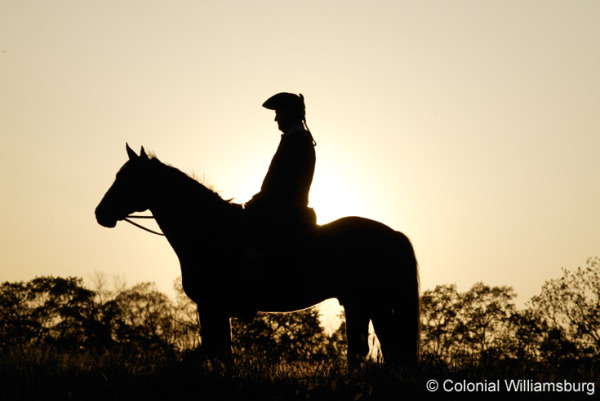 Many of our actors have dedicated decades to interpreting for Colonial Williamsburg. Our horses are no different. And after countless hours of pulling carriages and literally “carrying the show” in our reenactments, some of them are finally enjoying their hard-earned, much-deserved… retirement.
Many of our actors have dedicated decades to interpreting for Colonial Williamsburg. Our horses are no different. And after countless hours of pulling carriages and literally “carrying the show” in our reenactments, some of them are finally enjoying their hard-earned, much-deserved… retirement.
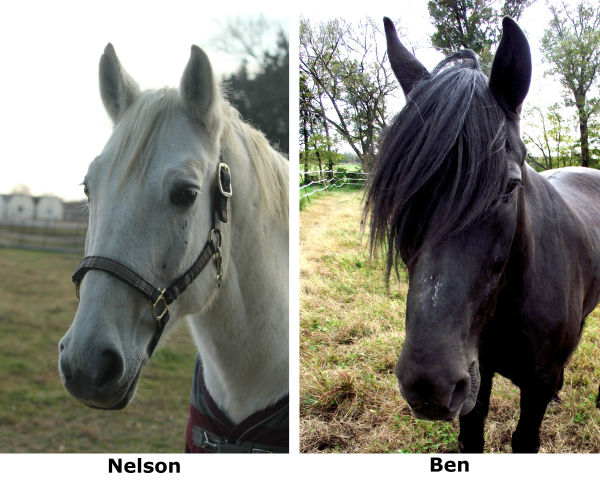 2014 was an unusual year for the coach and livestock department. A total of four horses headed to greener pastures-two because of age and two as the result of health reasons. The most recent to go, Nelson and Black Ben, now call the same 325 acre private boarding facility in northern Virginia, home! We caught up with Nelson’s new owner, Kimberly Walters to see how retirement is treating him.
2014 was an unusual year for the coach and livestock department. A total of four horses headed to greener pastures-two because of age and two as the result of health reasons. The most recent to go, Nelson and Black Ben, now call the same 325 acre private boarding facility in northern Virginia, home! We caught up with Nelson’s new owner, Kimberly Walters to see how retirement is treating him.
Kimberly Walters, an Army IT specialist, adopted Nelson in November. And while she may work a 9 to 5 in an office during the week, her weekends are spent doing 18th-century reenactment. And it was one costume in particular (shown below) that sparked her interest in learning to ride horses.
Once she did, she was hooked. It was around that time, she discovered a horse from her reenacting unit needed a home. Southern Belle, a Tennessee Walking horse, would become her very first adoption. You’ll notice in the photo she shared with us just how much Nelson resembles her.
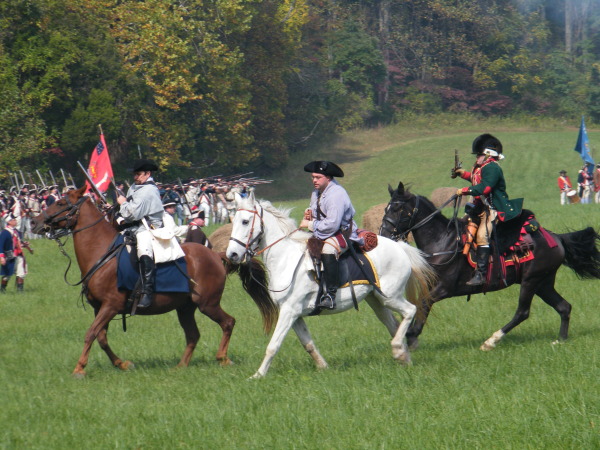 Sadly, after 4 1/2 years together, Kim lost Southern Belle to a tumor-related colic. Just three short months later, Ron Carnegie who portrays George Washington for Colonial Williamsburg, contacted Kim about a horse named Nelson. He was another gray who needed a home. To Kim, it was fate.
Sadly, after 4 1/2 years together, Kim lost Southern Belle to a tumor-related colic. Just three short months later, Ron Carnegie who portrays George Washington for Colonial Williamsburg, contacted Kim about a horse named Nelson. He was another gray who needed a home. To Kim, it was fate.
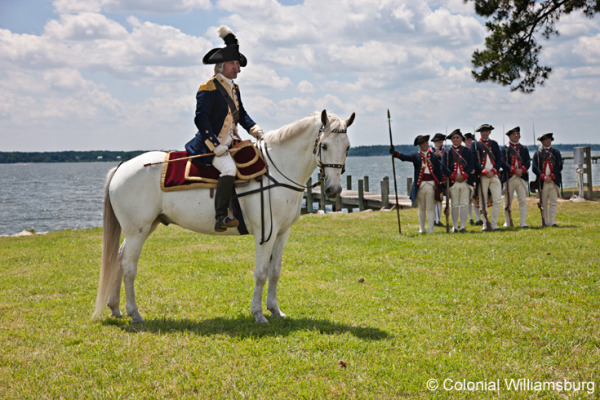
Nelson and Mark Schneider near the York River in Gloucester County at a Burgesses meeting in 2010 at Pigeon Hill.
After seven years with CW, with mostly Carnegie at the reins, it was time for Nelson to retire. It was a mutual friend who put the two horse lovers in touch and within a week of contacting our stables, Kim welcomed Nelson to his new “home.”
Ironically, it is the same facility where Ben, pictured here with Mark Schneider (as the Marquis de Lafayette) was adopted out to in October. “Black Ben” dedicated almost 16 years to CW and was the primary horse for many of our riding interpreters.
 We sat down with Karen Smith, supervisor of the stables, to talk a little bit more about the adoption process, including who usually takes the horses after they leave Colonial Williamsburg. Smith, who’s been with the program for 29 years, told us horses have been adopted out to employees, local guests, and even some outside visitors who fell in love with the animals during their trips here.
We sat down with Karen Smith, supervisor of the stables, to talk a little bit more about the adoption process, including who usually takes the horses after they leave Colonial Williamsburg. Smith, who’s been with the program for 29 years, told us horses have been adopted out to employees, local guests, and even some outside visitors who fell in love with the animals during their trips here.
The screening process includes three mandatory requirements: a proper facility to house the horse, proof of adequate medical care, and a basic knowledge of the animals. Almost all of the new owners stay in touch and send regular emails and updates about the horses.
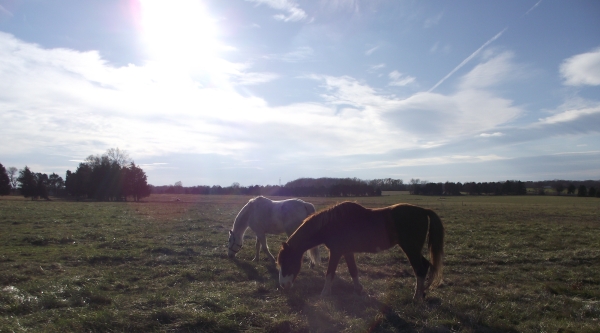 Nelson and his gelding friends currently have their own 20 acre field in which to run and play. There are two veterinarians who live on the property so all of the animals have round-the-clock care. We’re told Nelson is quickly adjusting to “retired” life. In fact, according to Kim he’s quite the jokester and is known to steal brushes when he’s being groomed. He’s also grown fond of apples, carrots, Fig Newtons and another favorite-butterscotch candies!
Nelson and his gelding friends currently have their own 20 acre field in which to run and play. There are two veterinarians who live on the property so all of the animals have round-the-clock care. We’re told Nelson is quickly adjusting to “retired” life. In fact, according to Kim he’s quite the jokester and is known to steal brushes when he’s being groomed. He’s also grown fond of apples, carrots, Fig Newtons and another favorite-butterscotch candies!
If you’d like to help with Nelson’s continued care, visit Kim’s website. She designs and sells 18th and 19th-century inspired jewelry. 100% of the proceeds goes right back to her horse rescues.
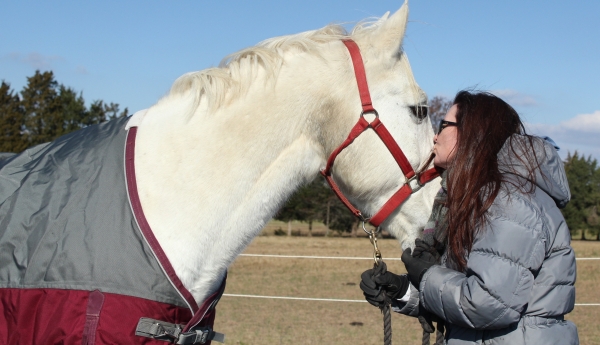

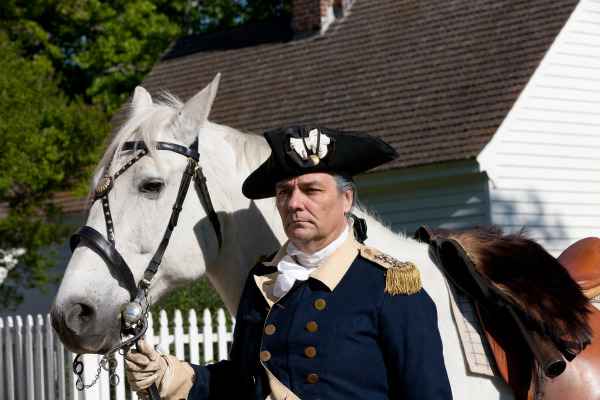
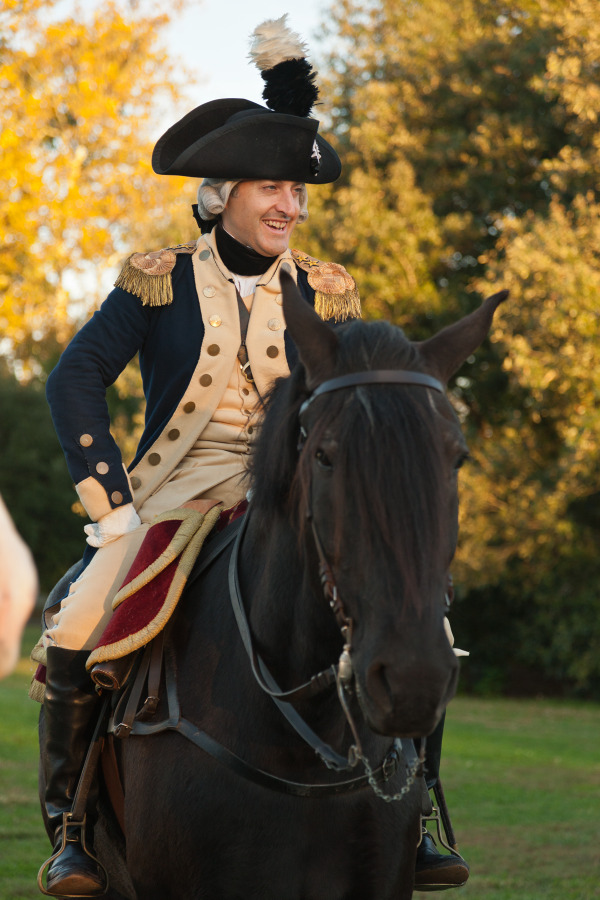


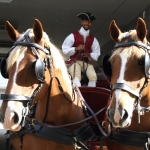
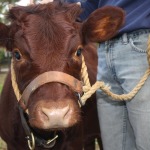
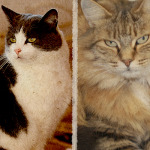
greetings:
I have had the pleasure of participating in Living history since 1975.
Currently I am doing Civil War, 6th OH cavalry, I am looking to learn how to drive. I also am a Chaplain and can use the wagon/cart for many duties with the 6th.
Do you teach how to properly drive? Can this be done in a week long intensive course? Ross Shaw recently attended your conference/training on farming at CW. He was so happy, to say the least.
I have looked on the interned and most never address the issue of “historical” driving and wagon and care of animals/vehicles.
Sincerely
Gary W. Osborn
I was asked if I had a quote that I could add to this blog and due to my tardiness and the bustle that marks the holiday season at Colonial Williamsburg I failed in this regard. In hopes that it might be received as an apology for this delinquency by Ms Ross, Ms Walters and my dear old friend Nelson (whom I called Blueskin) I now offer these remarks.
I thank Mr Nichols and his staff at Coach and Livestock for the great care and concern that they provide to our animals at the Foundation. There is a large amount of work in all weathers and sometimes at unusual hours in their care.
As to Nelson, we have been together for a few years now and he was a part of me and a part of my character as portrayed. I will greatly miss him, his reliability, his humour and his showmanship. he is a beuatiful hour and certainly has earned his peaceful retirement, far from the clangor of arms, the bustle of the camps and the cares of public employment.
Lastly, the care of retired horses can be a costly and time consuming endeavour. We at the Foundation and perhaps even more so the animals themselves are very fortunate that there are people like Kimberly Walters who offer these resources and their love to these creatures. Please, take the time to visit her website and see the lovely pieces she has available. They make perfect last minute Boxing Day gifts!
Sincerly
Ronald Carnegie Jr.
Colonial Williamsburg Foundation